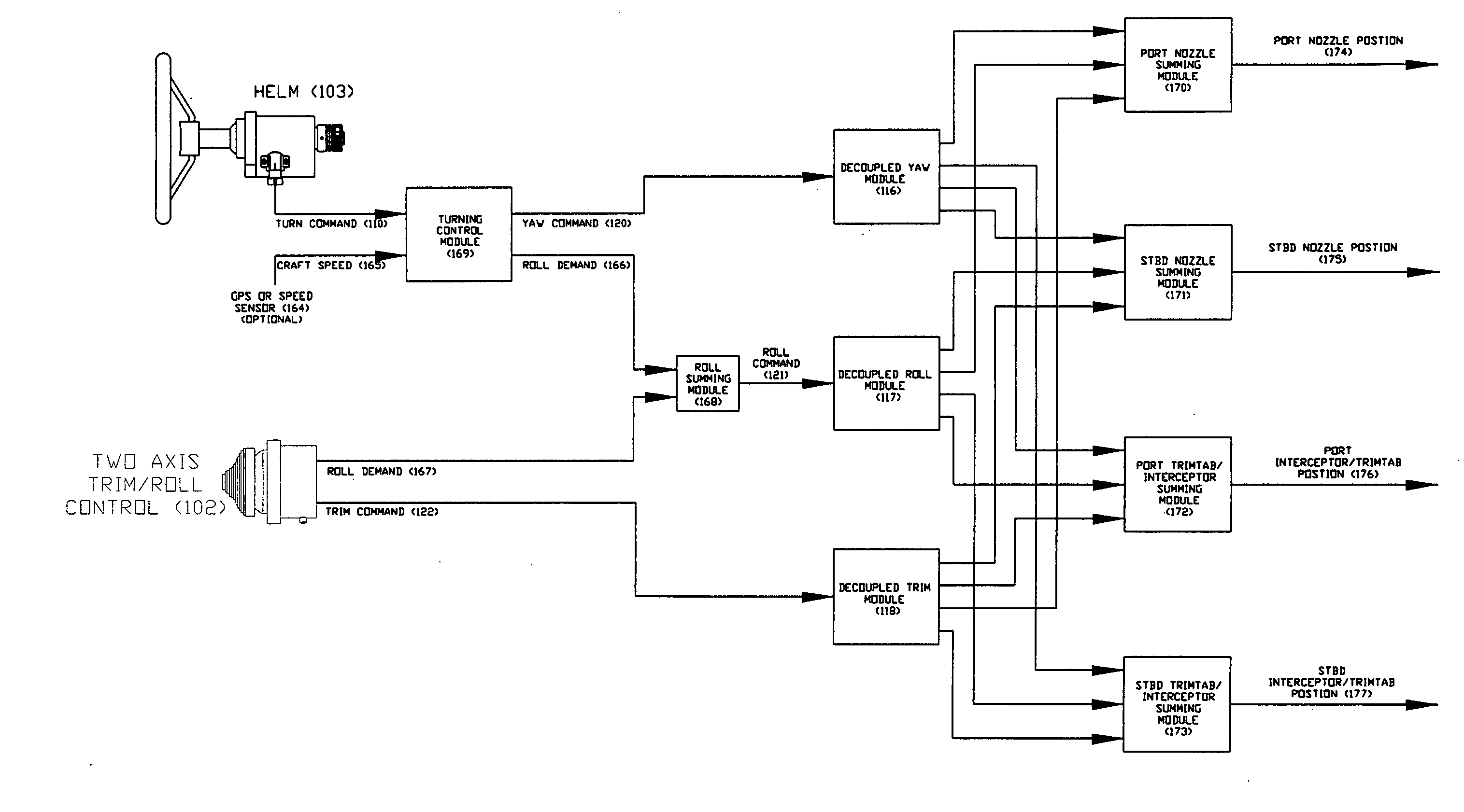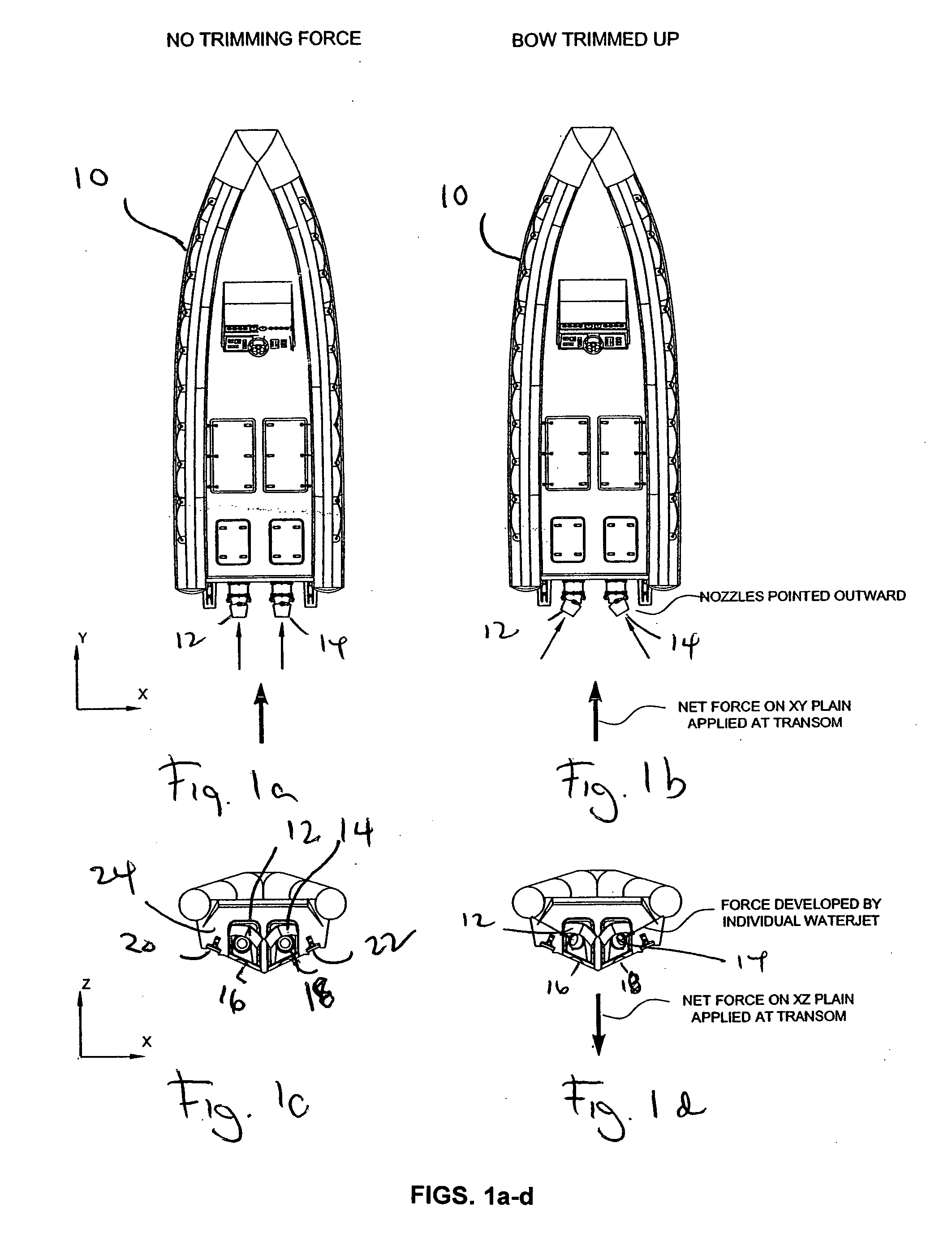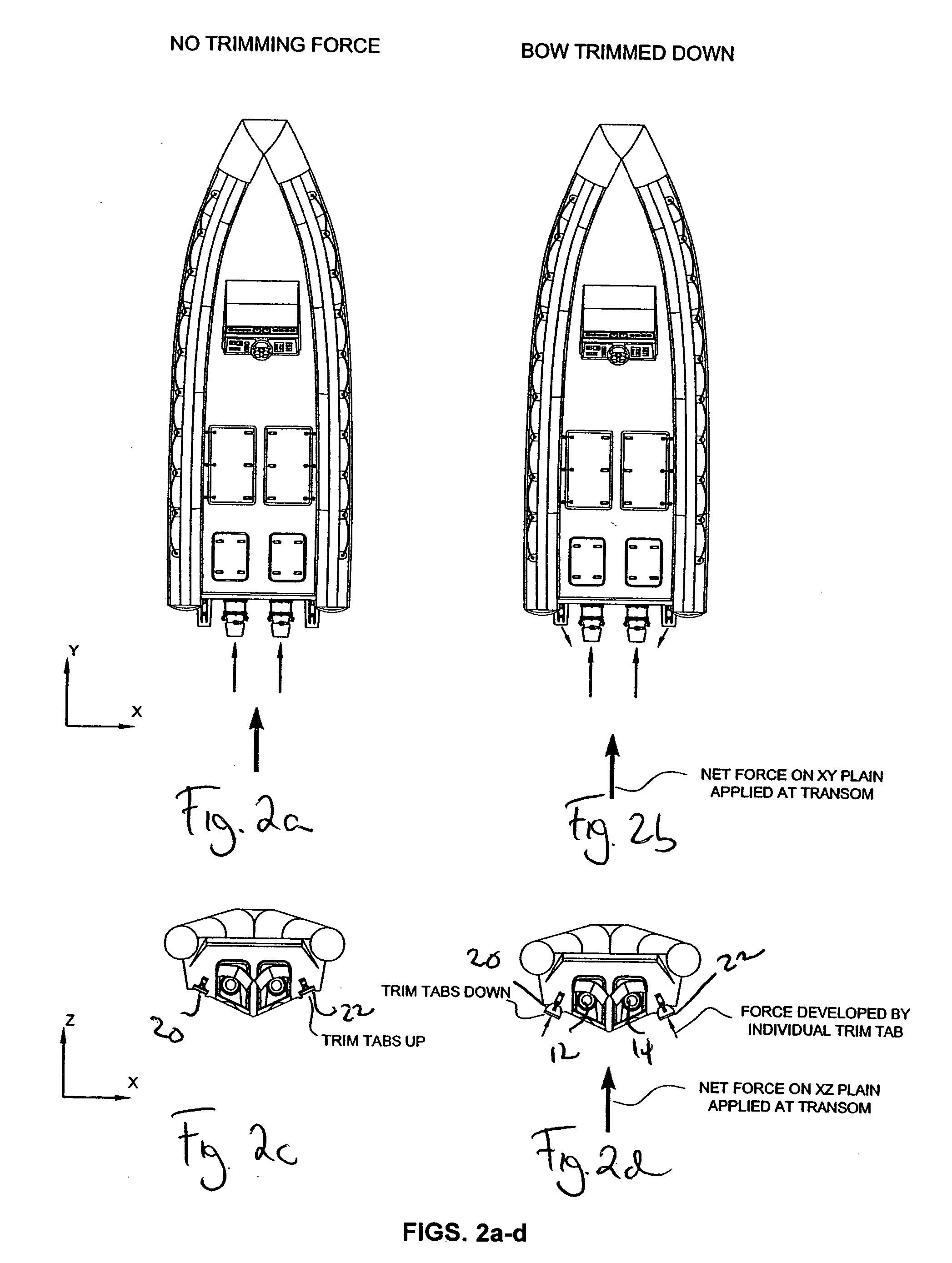[0030] According to another embodiment of a system of the invention, a system for controlling a marine vessel having first and second steering nozzles and first and second trim deflectors, comprises a processor that is configured to provide a first set of actuator control signals and a second set of actuator control signals, and wherein the first set of actuator control signals are coupled to and control the first and second steering nozzles and the second set of actuator control signals are coupled to and control the first and second trim deflectors. According the this embodiment, the processor is configured to provide the first set of actuator control signals and the second set of actuator control signal so that a net yawing force is induced to the marine vessel without inducing any substantial rolling forces to marine vessel, by actuating each of the first and second steering nozzles and one of the first and second trim deflectors.
[0031] According to another embodiment of a system of the invention, a system for controlling a marine vessel having first and second steering nozzles and first and second trim deflectors, comprises a processor that is configured to provide a first set of actuator control signals and a second set of actuator control signals, and wherein the first set of actuator control signals are coupled to and control the first and second steering nozzles and the second set of actuator control signals are coupled to and control the first and second trim deflectors. According the this embodiment, the processor is configured to provide the first set of actuator control signals and the second set of actuator control signal to induce a net rolling force to the vessel without inducing any substantial yawing forces to the marine vessel, by actuating one of the first and second steering nozzles and by actuating one of the first and second trim deflectors.
[0032] According to another embodiment of a system of the invention, a system for controlling a marine vessel having first and second steering nozzles and first and second trim deflectors, comprises a processor that is configured to provide a first set of actuator control signals and a second set of actuator control signals, and wherein the first set of actuator control signals are coupled to and control the first and second steering nozzles and the second set of actuator control signals are coupled to and control the first and second trim deflectors. According the this embodiment, the processor is configured to provide the first set of actuator control signals and the second set of actuator control signal to induce a net trimming force to the marine vessel without inducing any substantial rolling or yawing forces to the marine vessel by actuating each of the first and second steering nozzles and by controlling the first and second trim deflectors.
[0033] According to another embodiment of a system of the invention, a system for controlling a marine vessel having first and second steering nozzles and first and second trim deflectors, comprises a processor that is configured to provide a first set of actuator control signals and a second set of actuator control signals, and wherein the first set of actuator control signals are coupled to and control the first and second steering nozzles and the second set of actuator control signals are coupled to and control the first and second trim deflectors. According the this embodiment, the processor is configured to provide the first set of actuator control signals and the second set of actuator control signal to induce a net stabilizing force to the marine vessel without inducing any substantial trimming forces to the marine vessel by actuating each of the first and second steering nozzles and by actuating each of the first and second trim deflectors.
[0034] According to another embodiment of a system of the invention, a system for controlling a marine vessel having first and second steering nozzles and first and second trim deflectors, comprises a processor that is configured to provide a first set of actuator control signals and a second set of actuator control signals. The first set of actuator control signals are coupled to and control the first and second steering nozzles and the second set of actuator control signals are coupled to and control the first and second trim deflectors. The processor is configured to provide the first set of actuator control signals and the second set of actuator control signal to induce any of a net yawing force, a net rolling force, and a net trimming force to the marine vessel without inducing any other substantial forces to the marine vessel by controlling the first and second steering nozzles and by controlling the first and second trim deflectors.
[0035] According to one aspect of this embodiment of the system of the invention, the system may further comprise at least one detector that automatically detects parameters of the marine vessel and of any of the first and second steering nozzles and the first and second trim tabs during a maneuver of the marine vessel. According to another aspect of this embodiment of the system of the invention, the system may further comprise an active control module that modifies any of the net yawing force, the net rolling force, and the net trimming force to the marine vessel to account for the detected parameters.
 Login to View More
Login to View More  Login to View More
Login to View More 


